Ms Jen Balfe, Research and Policy Coordinator, Cystic Fibrosis Ireland, reports on the organisation’s
Annual Conference, which was held in March
The overarching theme of this year’s Cystic Fibrosis Ireland (CFI) Annual Conference was connection and the importance of relationships within the cystic fibrosis (CF) community. The future of the CFI community is focused on togetherness, on building relationships and support structures and advocating for the rights of people with CF (pwCF) to live their lives with hope and optimism. The changing landscape of CF health and the evolving priorities for the community were discussed in relation to a range of topics. These included mental health, CF liver disease, reproductive and maternal health and CF in the era of highly effective modulator therapy (HEMT).
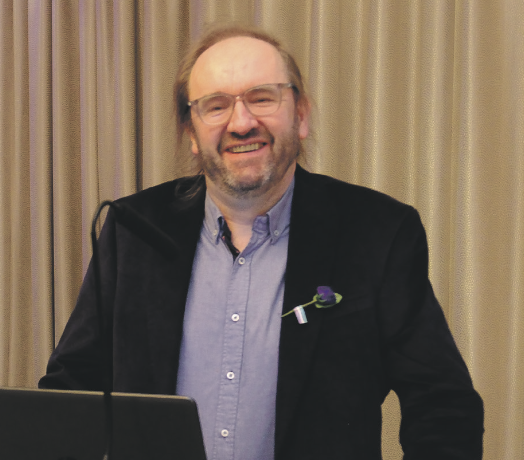
CF in a post-modulator era
Prof Barry Plant, Consultant Respiratory Physician and Director of the Adult CF Centre in Cork University Hospital, discussed some considerations which have arisen due to improvements in lung health and symptom management in pwCF. As a result of HEMT, many pwCF are not producing the same amounts of sputum as they were prior to commencing the treatment. While this clearly is a cause for great hope, it poses difficulties for the monitoring of infections in the lung when a person is no longer productive. Prof Plant stressed the point that while modulators have resulted in significant improvements in lung health, they do not remove bronchiectasis. While pwCF may have decreased exacerbations, they still occur and are still a risk. There is a need to keep in mind the lessons already learned in CF care and for continued monitoring of the microbiology of the lung.
Another consideration in the era of HEMT is the emergence of new health issues experienced by pwCF. While lung function is an important indicator and benchmark for health, there are other factors to consider. For instance, there are increasing numbers of pwCF who have seen remarkable improvements in their lung health, but who have also experienced weight gain and higher levels of cholesterol. As evidence grows of poorer metabolic health, we need to look ahead to protecting cardiac health.
Reproductive and maternal health for women with CF
Dr Imogen Felton, Respiratory Consultant in the Royal Brompton, UK, with expertise in CF and CFTR-related disorders, including CF maternal and reproductive health, explored the relevant and timely topic of reproductive and maternal health in women with CF. In 2021, she established a unique multi-disciplinary CF reproductive and maternal health service in partnership with obstetricians at Chelsea and Westminster Hospital, UK. This virtual clinic brings patients and their partners, CF physicians, obstetricians, physiotherapists, midwives, and other multidisciplinary team members together with the aim of providing the best possible care for women with CF during pregnancy.
Dr Felton described how these monthly multi-disciplinary team meetings have enhanced the experience of reproductive and maternal health for the women with CF whom she cares for.
Dr Felton discussed many pertinent fertility-related topics, from fertility planning to unplanned pregnancies and the question of taking modulators while pregnant/breastfeeding. She underpinned the discussion by stressing the value and benefits that shared decision-making has brought to their service.
Shared decision-making
Dr Felton’s talk was punctuated by the fertility journeys of several of her patients who were willing to share their experiences on camera.
The video contributions from women with CF who attended the service highlighted how much the service supported them in making decisions and prepared them for their fertility and pregnancy journey.
One woman with CF acknowledged how she appreciated the “honesty and transparency” of her team, with another commenting that “the team sees us as people”. Another woman emphasised how the reassurance provided by such a holistic type of service made her journey so much easier. She spoke of having “the overwhelming sense of I am safe”. This type of service for women with CF will no doubt be a model that women with CF in Ireland and their teams will have huge interest in.
Irish longitudinal study on cystic fibrosis liver disease
Dr Emer Fitzpatrick, Consultant Gastroenterologist, Children’s Health Ireland, highlighted the importance of the work of her recently retired colleague, Dr Marion Rowland. Dr Rowland recruited over 500 children with CF in 2006 for a longitudinal study in CF liver disease. Every five years, information about liver disease and general health is collected. Dr Fitzpatrick spoke of the privilege of continuing Dr Rowland’s research.
Prof Plant stressed the point that while modulators have resulted in significant improvements in lung health, they do not remove bronchiectasis
The monitoring of liver health in CF is mostly through blood tests and ultrasounds and rarely through liver biopsy. Dr Fitzpatrick explained how liver function is measured and some images of liver ultrasounds and liver biopsies illustrated the progression of liver disease. Dr Fitzpatrick noted the symptoms and signs in children with CF liver disease, a rare complication of CF, which included tiredness, feeling unwell, growth problems, bleeding, and jaundice and highlighted the importance of annual liver screening.
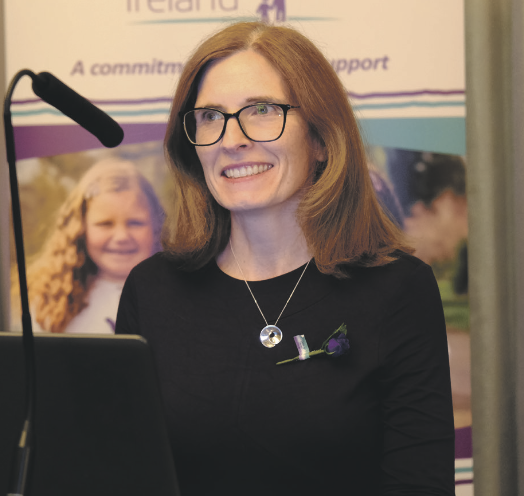
Dr Fitzpatrick emphasised that despite extensive knowledge of the liver, significant unknowns remain regarding CF liver disease, including who will develop it and why. She also raised the important question of how liver disease is influenced in the era of HEMT. Currently, the impact, if any, that modulators have had on CF liver disease cannot be determined due to a lack of data. However, she said Ireland is well-positioned to monitor any developments, thanks to ongoing research efforts.
Through a study co-funded by Cystic Fibrosis Ireland and the Health Research Charities Ireland/Health Research Board, Dr Fitzpatrick aims to use the data from the longitudinal study on CF liver disease to develop a prediction tool to see who develops liver disease and why, with a view to preventing the disease in the future. With so many unknown variables, there is hope that such a study might go some way in providing the CF community with much sought-after answers.
Irish Comparative Outcomes Study in CF
Prof Patricia Fitzpatrick is Full Professor of Epidemiology and Biomedical Statistics, and Head of Subject for Public Health, and Consultant in Preventative Medicine at St Vincent’s University Hospital (SVUH), Dublin.
At the Annual Conference, she spoke about the Irish Comparative Outcome Study in CF (ICOS) 2013-2017. For the study, which Prof Fitzpatrick leads, children who were diagnosed clinically with CF were compared to those who were diagnosed through newborn screening. The study compared clinical outcomes and cost comparisons from hospital and parental perspectives of both cohorts as well as examining the quality-of-life and carer burden of parents with CF.
Prof Fitzpatrick remarked on the positive changes which have occurred since she started this research. Her work on the ICOS study pre-dated the modulator era and comparatively evaluated growth, height, and infective exacerbations in both cohorts and indicated that screening did in fact show an improvement in outcomes.
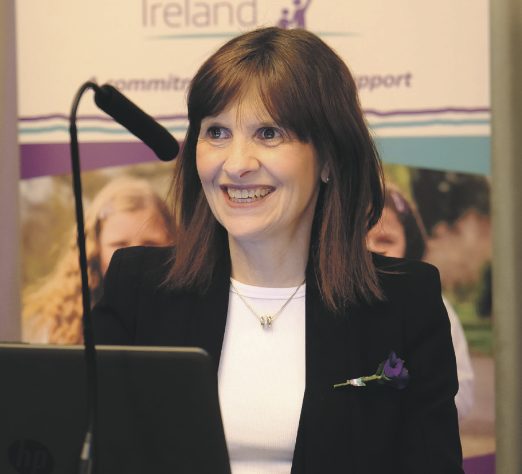
The second part of the ICOS study 2020-2025 is looking at trends over time. Using a new questionnaire developed by the University of Liverpool, UK, the day-to-day challenges faced by parents were evaluated. Prof Fitzpatrick highlighted the importance of balancing CF needs, financial challenges, problems with getting children to engage with physio routines or medications and child temperament. Relationships and the impact of CF within a family setting were also highlighted.
Prof Fitzpatrick referenced the cross-sectional study which used data from three maternity hospitals in Ireland to evaluate how women and their families were getting information on newborn screening for CF. It found that most of those surveyed received their information on screening for CF in the postnatal period with just under 40 per cent getting information antenatally. She stressed the need for parents to know and understand that CF is being screened for in the antenatal period.
Prof Fitzpatrick noted that several Covid-19-led developments were seen as very useful by parents of pwCF and pwCF themselves. Online physiotherapy, telemedicine, online education and training, and emailed prescriptions were acknowledged by many as being helpful and useful.
The importance of connection
Prof Fitzpatrick highlighted the participation burden in research of pwCF and their families/parents. She warmly thanked those involved for sharing their experiences and enriching the research. The connection between the family and the research world and the integral relationship between both highlighted how important asking the questions that reflect the real-life concerns of people is to families and people with CF.
Transition readiness
Dr Angeline Traynor (PhD), Paediatric Psychologist and post-doctoral researcher at the School of Psychology, University of Galway, spoke about transitioning from children to adult services. She also outlined the novel and supportive ways that can enable young adults and their parents adapt to the challenges of transitioning to an adult service after attending a children’s hospital for many years. Dr Traynor emphasised the importance of listening to young people and noted the importance of a youth advisory panel made up of young people with CF aged 16-to-25 in helping to steer her research.
Dr Traynor and her colleagues have set out to identify the factors for ‘transition readiness’. The aim to explore the experiences of young people in Ireland in order to identify their support needs and provide targeted support will surely prove of interest to young people and their families around the country and indeed internationally. This research involves interviews with adolescents and their families as well as young adults and their parents from SVUH. With an increasing sample size, it is hoped that the results of these interviews will help to identify barriers and challenges for young people transitioning to an adult service. It will also feed into a peer-to-peer mentoring group which will involve young adolescents being linked to a peer for mentoring and support. The plan to conduct a nationwide survey of teenagers with CF in Ireland will help to ascertain the experience of transitioning to adult CF services nationally.
Emerging dietary issues
Prof Audrey Tierney (PhD), Associate Professor and Discipline Lead in Human Nutrition and Dietetics in the School of Allied Health, University of Limerick, is currently researching metabolic health in CF. Prof Tierney acknowledged how the landscape around the role of diet in CF is evolving in the era of modulator therapy.
Where once CF and malnutrition were common, obesity and body image concerns as well as other issues like diabetes are emerging. She stressed the need for an individualised approach when addressing dietary concerns in pwCF and also placed importance on the value of listening to the CF community.
Prof Tierney led a research project called ‘Exploring diet quality in cystic fibrosis – enablers and barriers to eating a healthy diet in CF’. Discussing the study, Prof Tierney highlighted some areas of concern for pwCF. The project which surveyed adults with CF in Ireland about their usual dietary intake showed that diet quality for pwCF in Ireland is suboptimal. The intake of saturated fat and sugar also is a cause of concern and indicates a potential risk for adults with CF in developing metabolic-type diseases.
Diet and exercise: PwCF perspectives
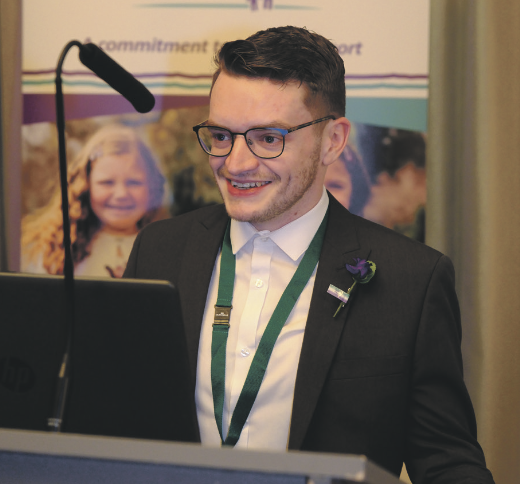
Mr Andrew Tyrrell, a person with CF and student dietician at the University of Hull, UK, discussed his journey with CF and food. He also referred to the new opportunities that the triple-combination therapy Kaftrio opened for him. In an honest and powerful presentation, Mr Tyrrell recalled how food intake was sometimes problematic growing up and to maintain his weight a diet of high-fat and sugar was consumed. Mr Tyrrell recalled how being diagnosed with CF-related diabetes was a major turning point for him and led to an improved diet and motivated him to eat more consciously and have a better relationship with his CF.
Dr Fitzpatrick emphasised that despite extensive knowledge of the liver, significant unknowns remain regarding CF liver disease, including who will develop it and why
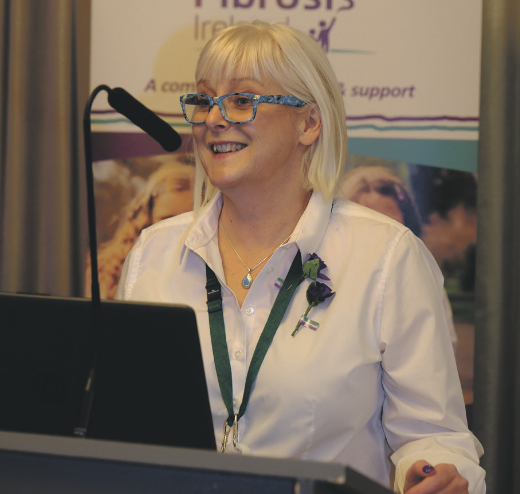
Ms Caroline Heffernan, a person with CF and CF advocate, spoke about her own personal experience with CF and exercise. The exercises Ms Heffernan engaged in included swimming and playing volleyball in school, to working her way up to endurance sports like marathons, triathlons, and cycling. It also included climbing Mount Kilimanjaro last year as part of the Highest Harp challenge, which raised money for CFI. She described how having children was the impetus to improve her fitness as she needed to be able to keep up with them. She acknowledged, like Mr Tyrrell, that a person’s relationship with their own CF is so important. Describing it as a relationship where there will be ups and downs, she shared how she befriended her CF and how it has made such a difference to her life.
Thanks to the new platform ‘Hop-In’, the CFI Annual Conference was attended both in-person and online reaffirming the focus on interconnectedness and inclusion. As always after a conference of such depth and variety, there were many questions left circulating in the minds of researchers, pwCF and their families, and healthcare teams. A point repeated throughout the conference was the importance of global access for treatment. Not everyone with CF has access to or is eligible for HEMT. Until access and eligibility is universal and experienced by everyone with CF, the fight will continue.

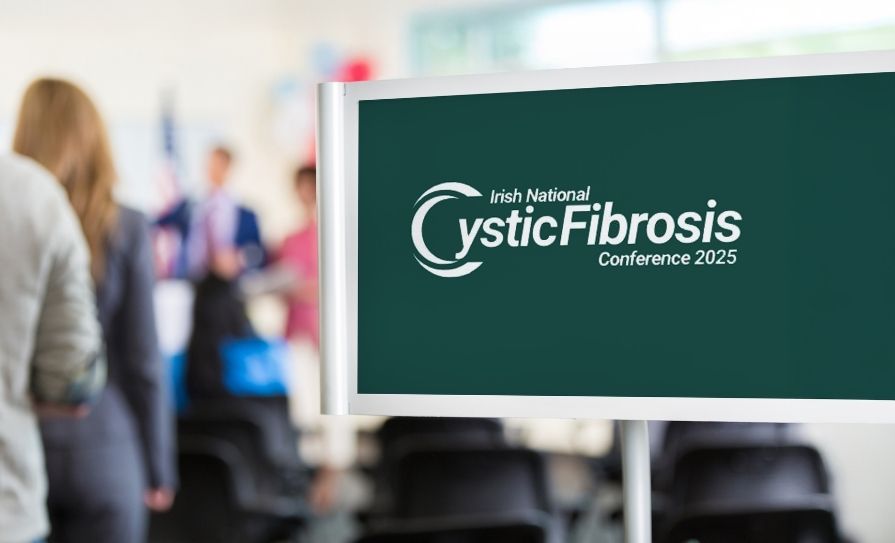
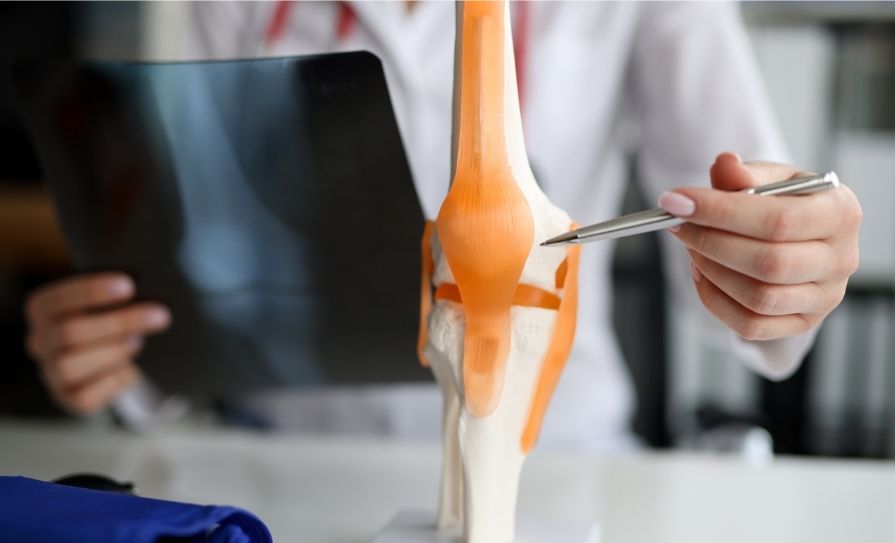
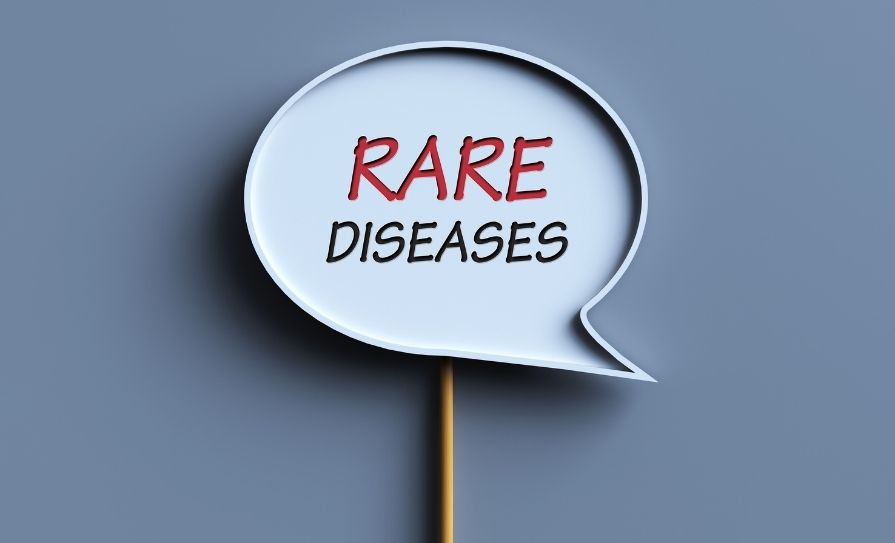

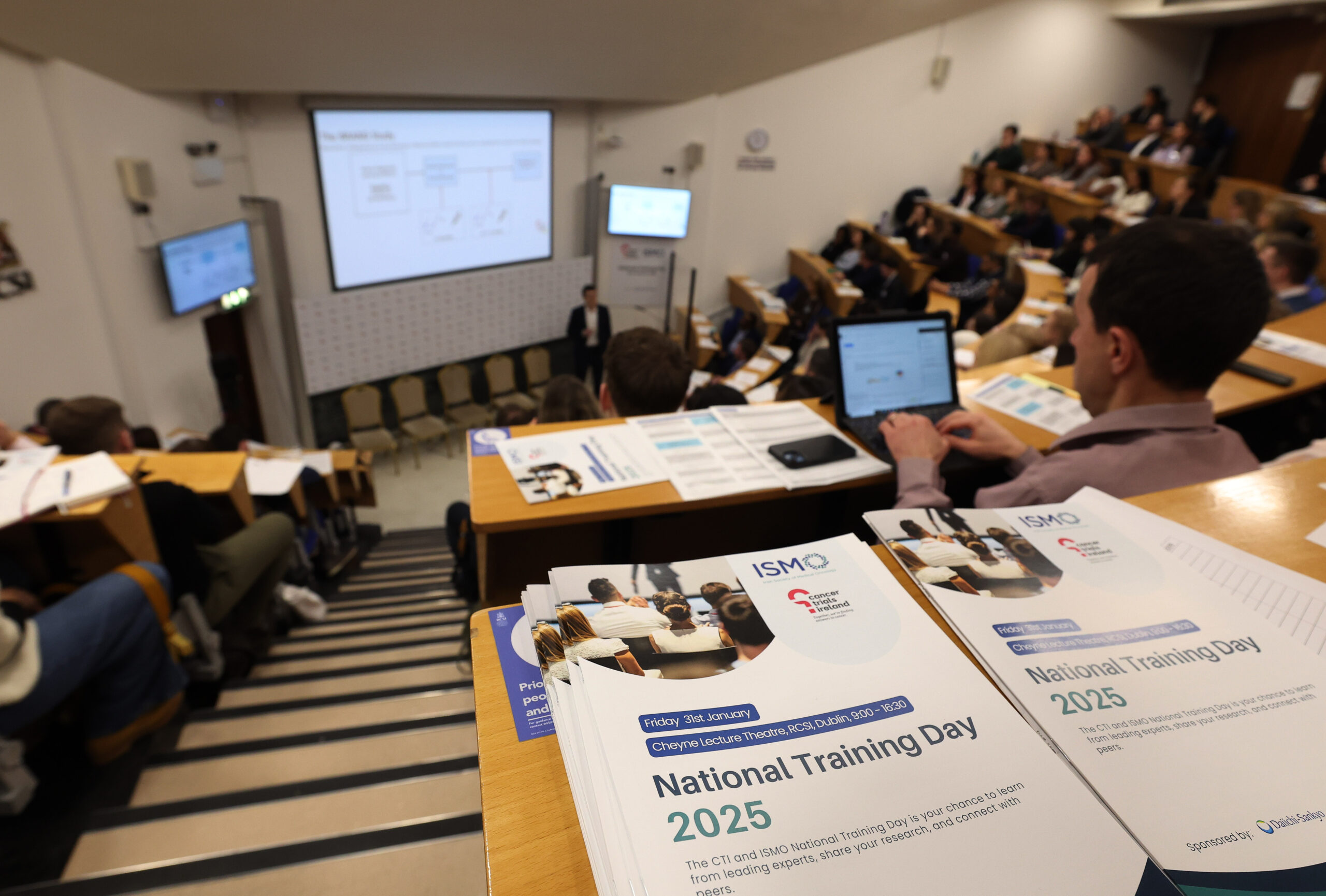

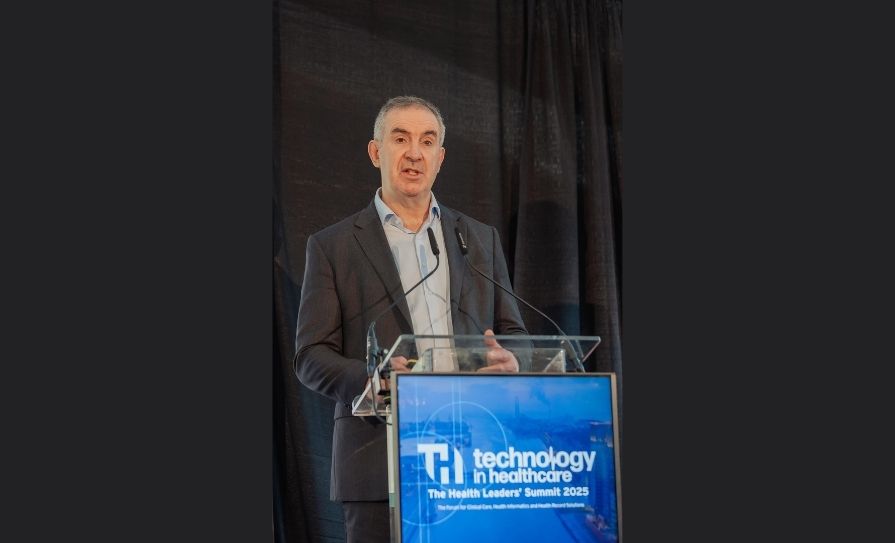





Leave a Reply
You must be logged in to post a comment.